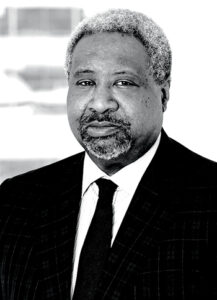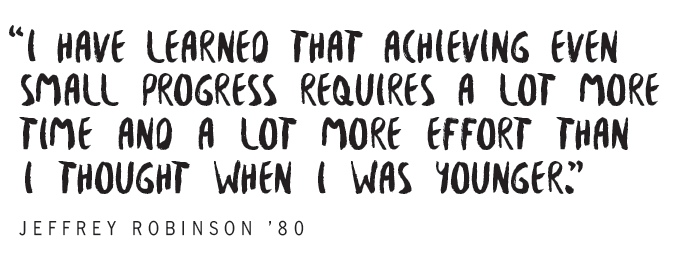Read our full interview below
Please describe your current and/or previous roles that relate to your work for justice and equality
My current role is in private law practice where I have engaged in supporting international human rights work through US litigation and in representing individuals and organizations seeking to address issues of racial justice and poverty. My past work has included serving as an Associate Director-Counsel of the NAACP Legal Defense Fund, working on civil rights and criminal justice issues at the US Department of Justice and US Senate Judiciary Committee, and working with US non-profits on civil rights issues while in private law practice.
What about your work brings you the most joy or gives you the most pride?
I would not describe the work as “bringing joy.” I don’t believe that to be the goal. I do feel privileged to play small roles in advancing the cause of justice and pushing the country to live up to its articulated ideals and its promise. I also feel proud to continue the struggle of those whose earlier work created the opportunities I have enjoyed.
What is your most meaningful moment or significant accomplishment as it relates to your work for justice and equality?
Amongst the matters of which I am most proud are
- representing a man on Florida’s death row in litigation that overturned his unconstitutional death sentence;
- working with a coalition to pass a California Voter Initiative reversing many aspects of the state’s “Three Strikes” law that imprisoned people who committed minor crimes for life; and
- obtaining a court ruling that targeting Black homeowners for predatory loans violates the Fair Housing Act.
What is the greatest hurdle you’ve had to overcome?
The greatest hurdles I see are the entrenched, systemic nature of the obstacles to justice and equality and the reaction/push back to progress. Not sure that they have ever yet been overcome, just temporarily pushed back.
How do you empower those around you?
I don’t believe that I “empower others.” I hope that I am helpful to others by encouraging them to pursue justice in the areas and ways that speak most compellingly to them. I also try to be available to provide practical suggestions and assistance that assists them pursue their goals.
How has this summer’s civil unrest and calls for equity impacted you?
The biggest impact has been to remind me of how much work is necessary to achieve justice and equality and how much remains to be done. I have been encouraged to see that there are people out there fighting and sacrificing to make a difference.
How has your perspective changed since the time you were a Lafayette student?
The biggest change in my perspective and what I have learned is that achieving even small progress requires a lot more time and a lot more effort that I thought when I was younger. I now believe that the work is rewarding for its own sake and should be appreciated. Failure to achieve success quickly and easily is no reason to stop trying.

